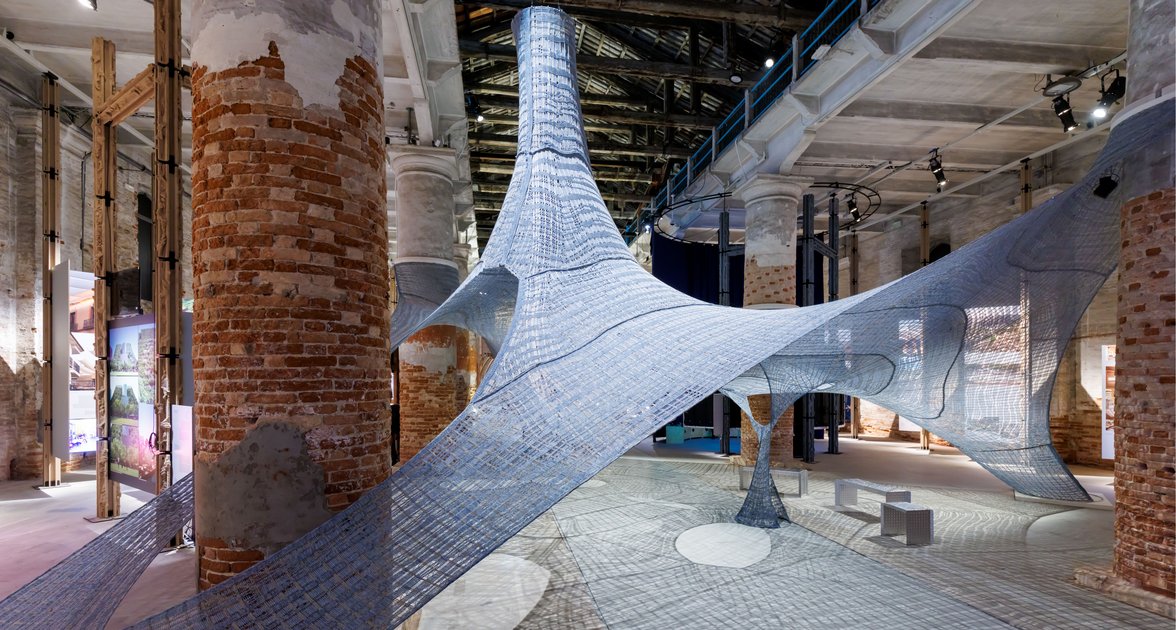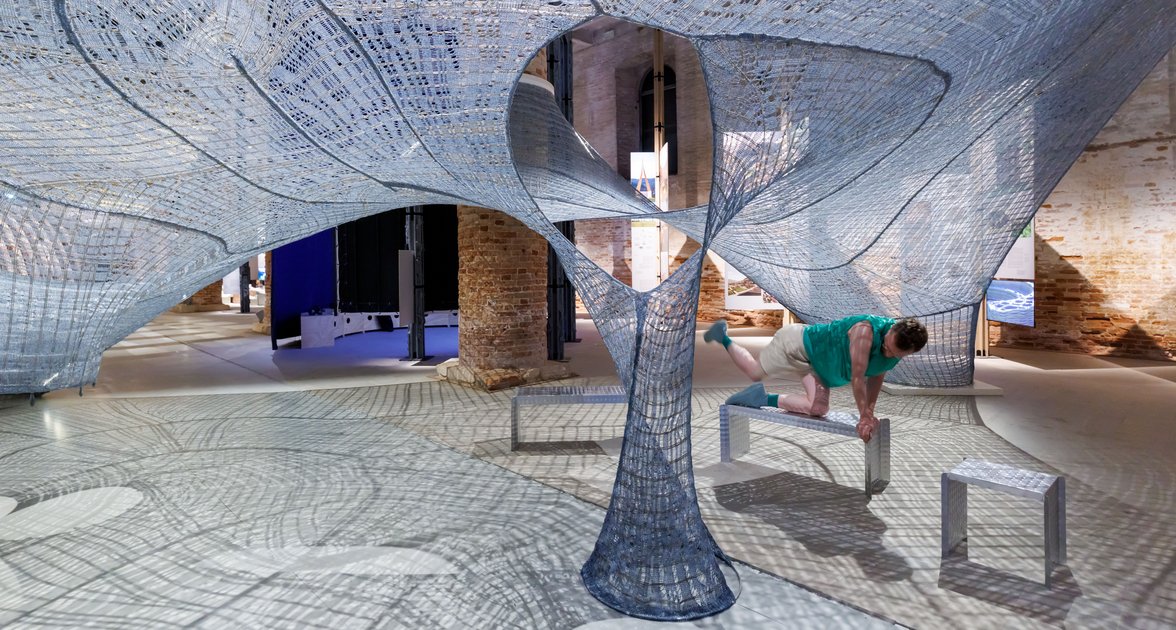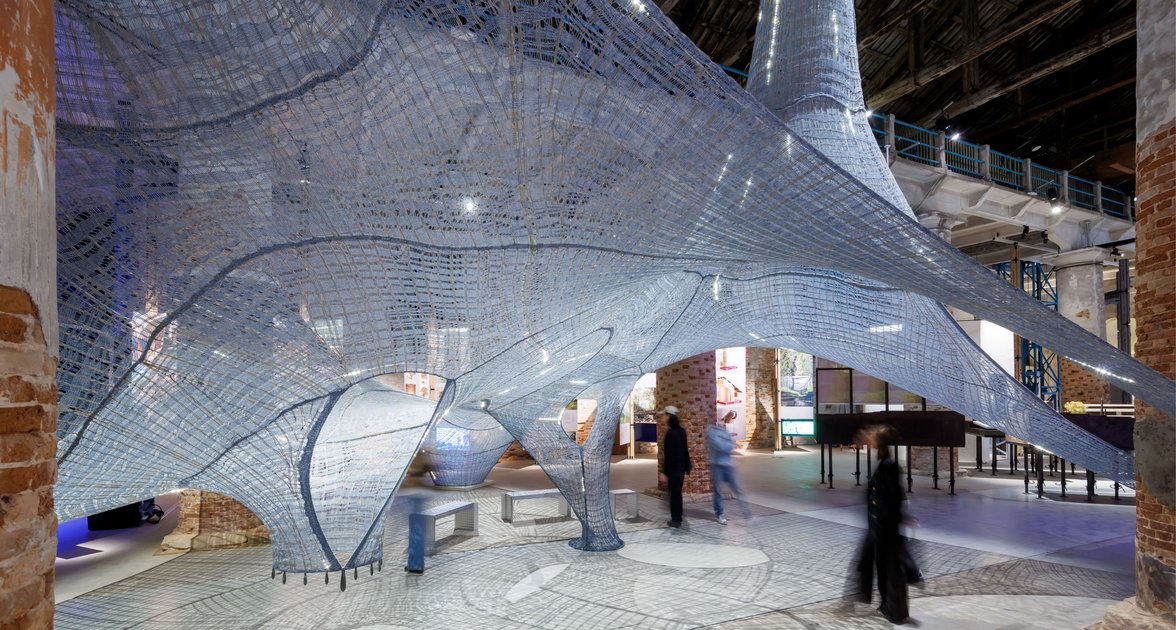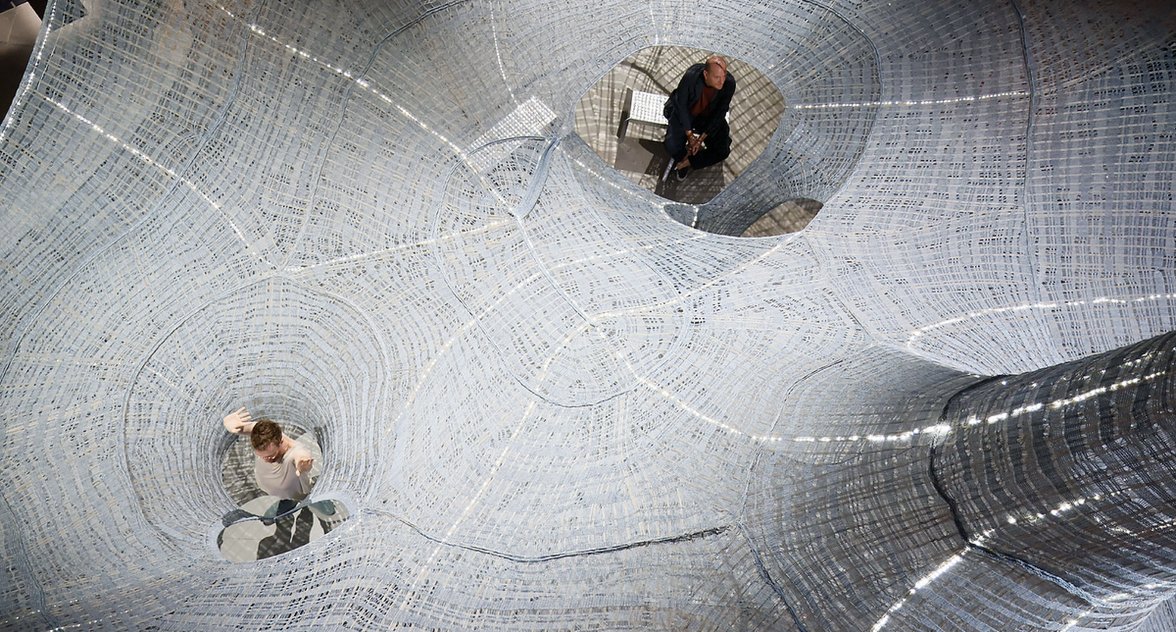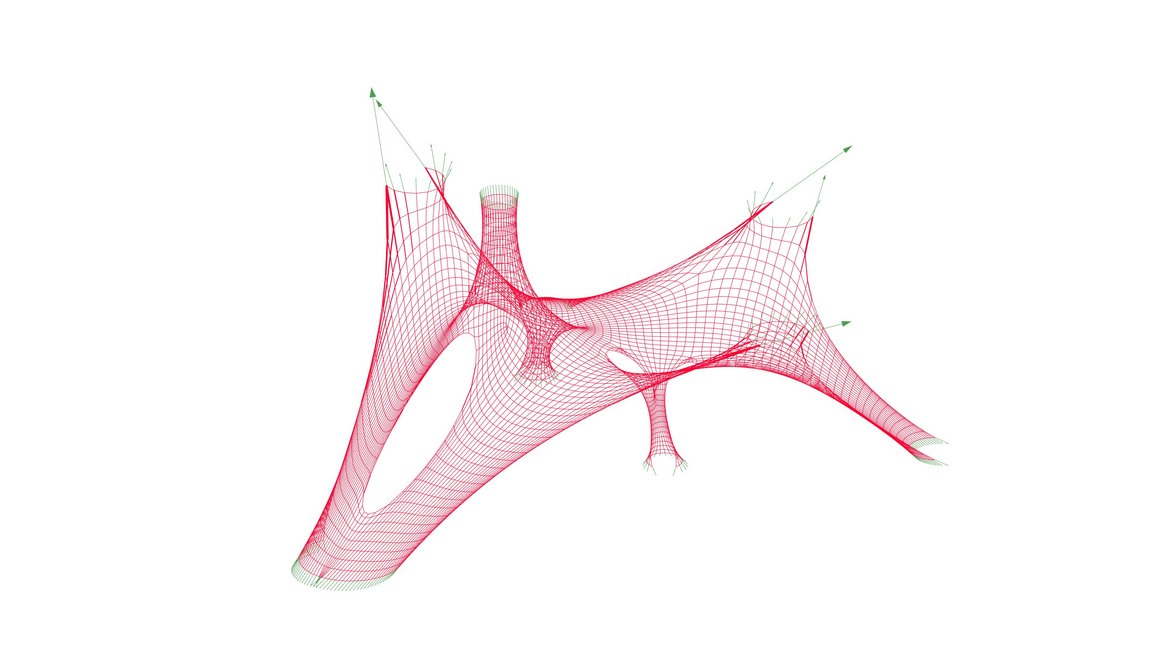Necto
"Necto" is a lightweight, reconfigurable membrane structure developed in collaboration between SO–IL, Tailored Materiality Research (TU Delft), TheGreenEyl, and the Professorship of Structural Design at TUM. Presented at the 19th International Architecture Exhibition in Venice, the project explores the integration of material performance, structural equilibrium, and digital fabrication within a sustainable architectural framework. Suspended within the historic Corderie of the Arsenale, the structure adapts fluidly to its context—hanging, braced, and anchored—resulting in three spatial conditions derived directly from its force equilibrium.
The form-finding process follows a multi-fidelity approach. An initial low-fidelity model based on the Force Density Method (FDM) was used to generate a preliminary anticlastic geometry in static equilibrium, allowing for rapid exploration of boundary conditions and overall form. This was followed by a high-fidelity stage using Finite Element Analysis (FEA), where the anisotropic material behavior of the knitted textile—its directional stiffness and nonlinear deformation—was explicitly integrated.
The surface is composed of 3D-knitted flax- and linen-based textiles, where fiber orientation and knit density are optimized according to the two principal stress directions identified through the form-finding process. This allows the structure to carry load efficiently while reducing material use. Functional grading is embedded directly into the fabrication process, with automated code generation ensuring direct translation from digital model to physical output. Selective stiffening through a biodegradable coating further allows the structure to vary between soft and stiff zones, adapting to local force conditions and enhancing spatial articulation. Encoded within the structure’s bio-coating is a digital material passport, written in synthetic DNA, documenting all fabrication and material data for full traceability and future reuse. At the conclusion of the exhibition, "Necto" can be disassembled, packed, and redeployed, embodying a fully circular design logic.
Design
SO – IL: Florian Idenburg, Jing Liu, Marlena Fauer, Demetri Lampris
Tailored Materiality Research (TU Delft/incoming MIT): Mariana Popescu
TheGreenEyl: Richard The
Membrane design and engineering
Tailored Materiality Research (TU Delft/incoming MIT): Mariana Popescu, Valentin Lorenzen da Silva, Niclas Brandt, Nikoletta Christidi
Experience design
TheGreenEyl: Richard The (creative director), Ben Bojko (software lead), Noah Feehan (hardware lead), Saralee Sittigaroon (architectural designer), Arden Schager (creative technologist), Ardak Mukanova (designer)
Structural Engineering
Professorship of Structural Design (TUM): Anass Kariouh, Pierluigi D’Acunto
Membrane fabrication and construction
Tailored Materiality Research (TU Delft/incoming MIT):Mariana Popescu, Nikoletta Christidi
Steiger Participation S.A: Jean-Luc Lepieszko, Jean-Francois Cochez
Bio-coating and DNA data embedding and error correction
Shaping Matter Lab (TU Delft): Kunal Masania, Jasper Groen
Functional Materials Laboratory (ETH): Robert Grass, Francesca Granito
Professorship of Machine Learning (TUM): Reinhard Heckel, Maria Abu Sini
Sound Design
Marian Mentrup
Furniture
Tim Teven Studio
Opening Performance
Riley Watts
